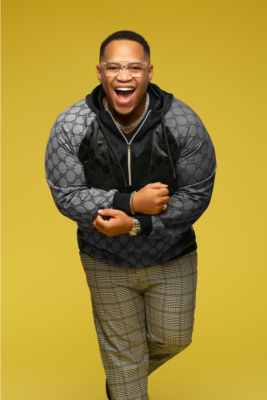Sean ‘Diddy’ Combs (Photo Credit: The Cable Show/Flickr).
By Robert H. Marshall Jr.
Black men in America have built empires, led revolutions and risen to power, but their successes often come with a heavy burden. They face internal fears, traumas and demons often rooted in transgenerational trauma and societal expectations, all while pursuing “the dream.” Despite their success, they frequently encounter unrelenting conflict and face denial of healing. Every Black man’s struggle is about rising and staying whole and true, as the truth is that success does not eliminate internal conflicts or traumas but rather amplifies them. “More money, more problems,” as the Notorious B.I.G. masterfully summed it up. — Robert H. Marshall Jr.
Success is more than a destination—it is a journey, a climb through valleys of adversity, mountains of triumph and sometimes, deep, dark shadows. For Black men in America, this climb is rarely straightforward. It’s not just about reaching the top; it’s about surviving the weight that comes with each step.
Whether standing on the mountaintop of justice like Dr. Martin Luther King Jr. and Malcolm X or reigning in the worlds of music, business, and entertainment like Sean “Diddy” Combs, R. Kelly, Bill Cosby, Kanye West, Jonathan Majors, Chris Brown, and Tory Lanez, each of these men faced the world with power and purpose—but also with pain and conflict, both internal and external. Let’s face it—some of these men fell by their own choices, not external pressures. They’ve been accused and, in many cases, found guilty of causing real harm. We cannot overlook that, and we won’t excuse it.
But behind the fame, the fortune and the headlines, there’s a deeper story—one of unhealed wounds and unresolved trauma.
R. Kelly experienced sexual abuse as a child, a trauma that never healed, subsequently shaping his horrific actions. Bill Cosby, who was once beloved but is now known for his abuse, exemplifies the perilous combination of power and unresolved issues. Sean “Diddy” Combs lost his father early to violence, pushing him into a relentless pursuit of success, but not without controversy along the way.
Kanye West has struggled with mental health and the grief of losing his mother, which are battles he faces in the public eye. Chris Brown grew up in a violent home and tragically repeated those patterns. Jonathan Majors and Tory Lanez—both talented—are now entangled in legal battles, further proving that unresolved pain will eventually catch up with you.
Their actions are inexcusable, but their stories remind us that trauma left untreated becomes a dangerous cycle. Society celebrates their rise, but when they fall, we forget to ask: What pain were they carrying all along?
[perfectpullquote align=”full” bordertop=”false” cite=”” link=”” color=”” class=”” size=””]Now, let’s take a moment and turn the mirror toward ourselves. What about the parts of us no one sees? What pain are we carrying? What trauma have we buried deep because we didn’t have the space or the tools to heal? Have we ever chased success to outrun our own pain? Or found ourselves repeating cycles we swore we’d break?[/perfectpullquote]
Accountability is crucial, but so is understanding the deeper wounds that shaped their downfall. And, what will it take for you to face your own?
The stories of Black men in the spotlight aren’t just isolated incidents—they’re reflections of a much deeper, generational struggle with unresolved trauma. We’ve seen men rise to incredible heights, but the truth is that success doesn’t heal the wounds many of them carry.
Black men are 20% more likely to experience serious mental health issues, yet they’re often the least likely to seek help.
That untreated trauma? It festers. Like an untreated wound that festers beneath the surface, it seeps into every aspect of life—infecting relationships, actions and choices, ultimately leading to the public downfalls we witness.
But this isn’t just about fame. Black men are dying by suicide at four times the rate of Black women, and incarceration rates are six times higher for Black men. Violence—whether against themselves or others—too often becomes an outlet for unspoken pain. Dr. Martin Luther King Jr. once said, “Violence is the voice of the unheard.” For many Black men, that violence is an expression of the trauma they’ve never been able to voice or heal.
70% of Black adults who need mental health care never receive it. That means millions of Black men are left to battle their trauma alone, and the consequences are devastating. But we can change this narrative.
This is where the work we do comes in. We are creating spaces where boys and men can unpack their trauma, empowering them with the tools needed to move from trauma to triumph, and those who walk alongside them to do it well while healing without fear or judgment.
This is how we break the cycle—by creating safe spaces where men can talk through their experiences and humanize their lived realities. Inside every man is a little boy who longs to be seen and heard and has a deep desire to feel safe.
When we provide these spaces, we allow them not only to heal but also to reclaim who they truly desire to be. It empowers them to move beyond the version of themselves that was created solely to survive and instead step into the fullness of who they are meant to become.

Photo Credit: Jason McCoy Photography
For more information about our work and impact, visit www.roberthmarshall.com or connect with me on Facebook, Instagram or LinkedIn at @roberthmarshalljr.
